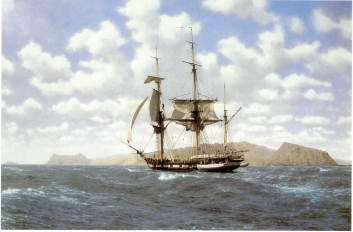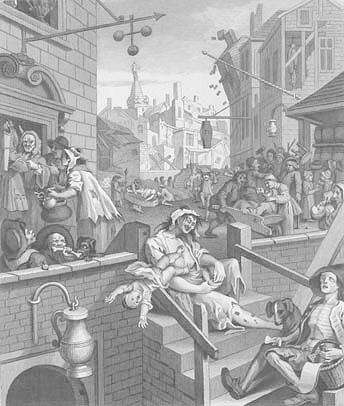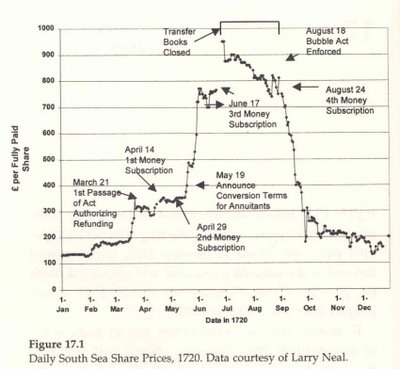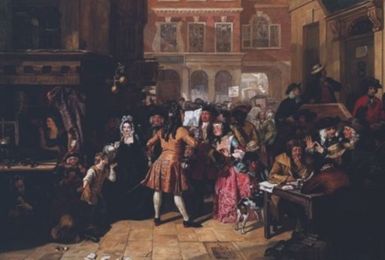 Sweetness and Power: the Place of Sugar
in Modern History.
Sweetness and Power: the Place of Sugar
in Modern History. Sweetness and Power: the Place of Sugar
in Modern History.
Sweetness and Power: the Place of Sugar
in Modern History.
Sidney W. Mintz, 1986.
![]()
“there is nothing natural or inevitable about these processes.”
Page 8.
Forest in the tropics.
Introduction
| Food | Production | Consumption
| Power | Appetites | Vocabulary ![]()
![]()
Saccharum Officinarum, is the Latin name for genus and species of sugar cane.
Landscape with sugar fields in Cuba.
"What commodities are, and what commodities mean, would thereafter be forever different. And for that same reason, what persons are, and what being a person means, changed accordingly. In understanding the relationship between commodity and person, we unearth a new history of ourselves."
p. 214.
The laborious, capital intensive, and sequenced steps in the production of molasses from sugar.
Steps in sugar refining:
"Since sugar seems to
satisfy a particular desire (it seems, in doing so to awaken that desire yet
anew), one needs to understand just what makes demand work: how and why it increases
under what conditions."
European roots are "obscure & enigmatic" the history of sugar consumption in Britain from 1650 -1900
p. xxv
"...the anthropology of just such homely, everyday substances may help us clarify both how the world changes from what it was to what it may become, and how it manages at the same time to stay in certain regards very much the same."p. xxvii
"Human beings do create social structures, and do endow events with meaning, but these structures and meanings have historical origins that shape, limit and help to explain such creativity."
p. xxx
![]()
![]()
Introduction | Food | Production | Consumption | Power | Appetites
![]()
"taxonomies of taste"
"the importance of sweetness in English taste preferences grew overtime, and was not characteristic before the eighteenth century."
p. 18.
"the character of the English diet, ... Is relevant, were struggling to stabilize their diets around adequate quantities of starch consumption."
p. 13.
Terraced rice fields in Indonesia, the islands from where sugar was brought to the west. All crops because of their patterns of land-use affect the topography and the watershed of the places wherein they are grown.
![]()
![]()
Introduction | Food | Production | Consumption | Power | Appetites
![]()
"A plant food manufactured photosynthetically from carbon dioxide and water, [fructose] sucrose is thus a fundamental feature of the chemical architecture of living things."
19
"The intrinsic nature of sugar cane fundamentally affected its cultivation and processes."
21
"The Arab expansion westward
marked a turning point in the European expedience with sugar."
711 Arabs in
Spain,
732-759 retreat to Spain,
996, sugar in Venice.
pp. 23-24.
The triangular trade
The commercial exchange among these points, called ports of call meant a fortune for European investors.
Explanations of the relative costs of the sugar trade to Britain's taxpayers and its economic impacts on society,
56
 "The costs were widely diffused, but the benefits accrued to a small group of owners who happened to be well represented in Parliament. British mercantilism during the eighteenth century was not a consistent national policy designed to maximize the wealth of Britain; nor was it a preview of the alleged enrichment of capitalist nations nations by nineteenth century empires. It was instead . . . a means to provide revenue to the government and a device to enrich special interest groups."
"The costs were widely diffused, but the benefits accrued to a small group of owners who happened to be well represented in Parliament. British mercantilism during the eighteenth century was not a consistent national policy designed to maximize the wealth of Britain; nor was it a preview of the alleged enrichment of capitalist nations nations by nineteenth century empires. It was instead . . . a means to provide revenue to the government and a device to enrich special interest groups."
56
"The maturing of a plantation system based on slavery in the Caribbean region came with, and was greatly preconditioned on, the development of powerful commercial and military navies in western Europe. "
58.
![]()
![]()
Introduction | Food | Production | Consumption | Power | Appetites
![]()
" . . . it is difficult to imagine a world without it. . . . Only a few centuries ago it would have been equally difficult to imagine a world so rich in sugar."
p. 74.
Rice fields in China: "All other foods, including meats, diary products, vegetables and fruits, were subsidiary to grains. It was poverty of resources..."
p. 75
"what was most striking about the English diet at that time was its complete ordinariness and meagerness. Then and for long thereafter most Europeans produced their own food locally."
pp. 74-75.
1595 - 97, lean years in England.
From 1531-1637 one in every five years, on average, were bad harvest years; then in the eighty years from 1660 to 1740, one in every four years produced bad harvests.
 "The seventeenth century seems to give evidence of significant change. Between 1640 and 1740, the English population rose from about five million to slightly more than five and one-half million, a rate of growth, lower than the preceding century, that may have reflected a greater disease vulnerability brought about by bad nutrition and / or the spread of gin drinking."
"The seventeenth century seems to give evidence of significant change. Between 1640 and 1740, the English population rose from about five million to slightly more than five and one-half million, a rate of growth, lower than the preceding century, that may have reflected a greater disease vulnerability brought about by bad nutrition and / or the spread of gin drinking."
Brian Murphy argues that:
"There were still plenty of people with empty stomachs, but who, even at low bread prices, lacked the money to fill them."
"It was rather a matter of grossly inadequate income among the laboring classes.",
pp. 76-77.
"the history of sugar in the United Kingdom has been marked by many 'accidental' events, such as the introduction of bitter stimulant beverages in the mid-seventeenth century [1650s]. But sugar consumption's rise thereafter was not accidental; it was the consequences of underlying forces in British society and of the exercise of power."
p. 150.
![]()
Introduction | Food | Production | Consumption | Power | Appetites
![]()
"sugar for a great part of our population is a stimulant."
Ashby,
177
"In this perspective, sugar was an ideal substance. It served to make a busy life seem less so; in the pause that refreshes, it eased, or seemed to ease, the changes back and forth from work to rest; provided swifter sensations of fullness or satisfaction than complex carbohydrates did; . . . "
"it was symbolically powerful (as well), for its use could be endowed with many subsidiary meanings . . . No wonder the poor learned to love it."
186
![]()
Introduction | Food | Production | Consumption | Power | Appetites | Vocabulary
![]()
"we have already seen how sucrose, this 'favored child of capitalism' –
Fernando Ortiz' lapidary phrase – epitomized the transition from one kind of
society to another."


"The first sweetened cup of hot tea..." had "consequences"..."for upon them
(kindred events" was erected an entirely different conception of the relationship
between producers and consumers, of the meaning of work, of the definition of
self, of the nature of things."
p. 214.
capitalism - a form of wealth accumulation based on investment in commercial and financial transactions as opposed to feudal wealth based on land, serfdom, or livestock. See - Jean Baudrillard, A post modern critic of capitalism.
lapidary (phrase) - polished prose; the use of very precise language to accurately reveal the author's intent and meaning.
ubiquitous (quality)- everywhere; the existence of something such that anywhere you go you encounter this thing.
taste (attribute) - a person's tendency to like and dislike certain things; especially the ability of people to discern how something is of good quality or displays a rare or admirable aesthetic standard.
![]()
Introduction | Food | Production | Consumption | Power | Appetites
![]()